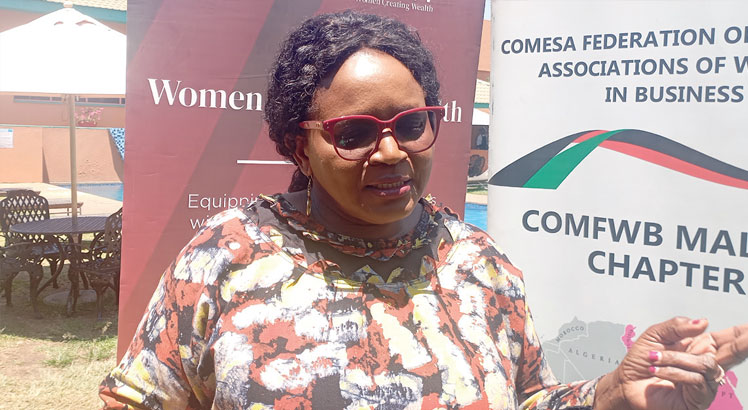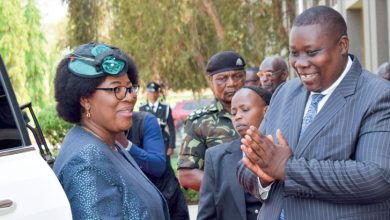Women-led firms sidelined in govt contracts—study
A new study by the 21-member Common Market for Eastern and Southern Africa Federation of Women in Business Malawi Chapter has revealed that women-led businesses access less than one percent of public sector contracts.
This stark reality was highlighted by Common Market for Eastern and Southern Africa Federation of Women in Business Malawi Chapter chairperson Selina Mwenelupembe at a research dissemination meeting in Lilongwe on Friday.
The study attributed this dismal figure to two primary reasons: either women-led businesses don’t qualify for government contracts or women are not aware of how to participate in the bidding process.

disparity to public procurement. | George Lumwira
In her remarks, Mwenelupembe said generally there is a gap in participation of women in public procurement, with women-led businesses being small and failing to scale up and create enough resources.
She said: “We found that less than one percent of the national budget is accessed by women and the research also has shown that women do not participate in public procurement.
“The study further shows that 36 percent are not aware of the micro, small and medium enterprises (MSME) order that is there to allow women participate in public procurement.”
The study titled ‘Assessing the participation of women led businesses in public procurement in Malawi’, indicates that since the MSME Order was introduced in 2020, the total value of contracts awarded to women was K23.75 billion, which is 0.44 percent of the overall value of all procurements undertaken during the study.
“This indicates that less than one percent of the national procurement value in Malawi is awarded to women- owned businesses.
“Such a disproportionately low share underscores the persistent gender disparity to public procurement opportunities,” reads part of the report.
Meanwhile, the report has attributed the situation to challenges women face in meeting financial and technical requirements associated with the public procurement process, limited knowledge in procurement procedures and complexity of application process among others.
In an interview, deputy director for women empowerment in the Ministry of Gender, Children and Social Welfare Fred Simwaka said apart from encouraging women entrepreneurs to formalise their businesses and form groups to improve capacity, the ministry has increased awareness campaigns on Gender Equality Act.
He said: “The Gender equality Act came out in 2013 and we have been disseminating the Gender Equality Act and we have even gone further disseminating it in special and regular gatherings.
“But because of resource constraints, it is difficult to reach out to all people at community and national level.”
Graca Machel Trust country project coordinator Towera Newa, whose organisation funded the study, said the research was critical to identify the barriers and the structures that needed to be adjusted.
“It was an area of interest to us because once we identify these barriers, we can advocate for change to include women. The structures need to be friendly so that women should be able to trade with their own government,” she said.
The 2023 National Statistical Office report showed that women constitute 52 percent of the country’s population yet their participation in economic opportunities, particularly in public procurement, remains disproportionally low.
Public procurement accounts for approximately 75 percent of Malawi’s national budget, making it a critical driver of economic growth, according to National Statistical Office.





